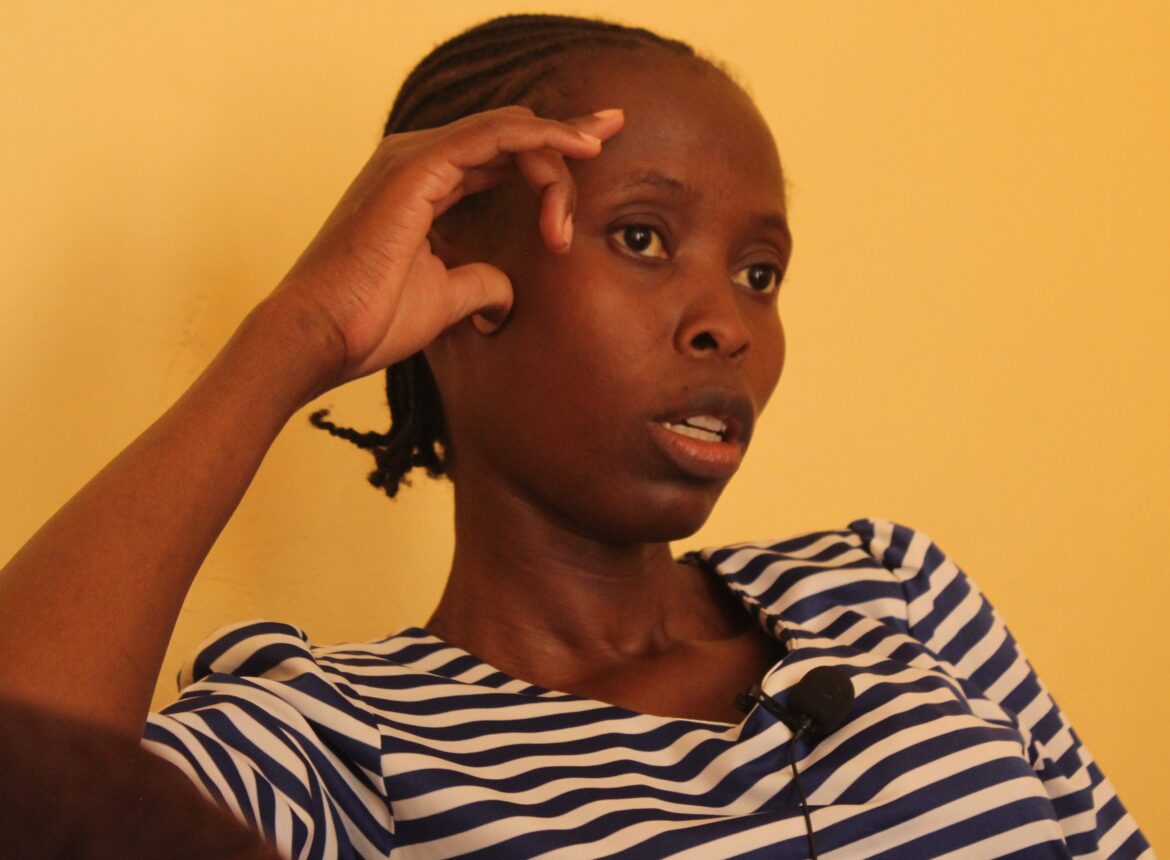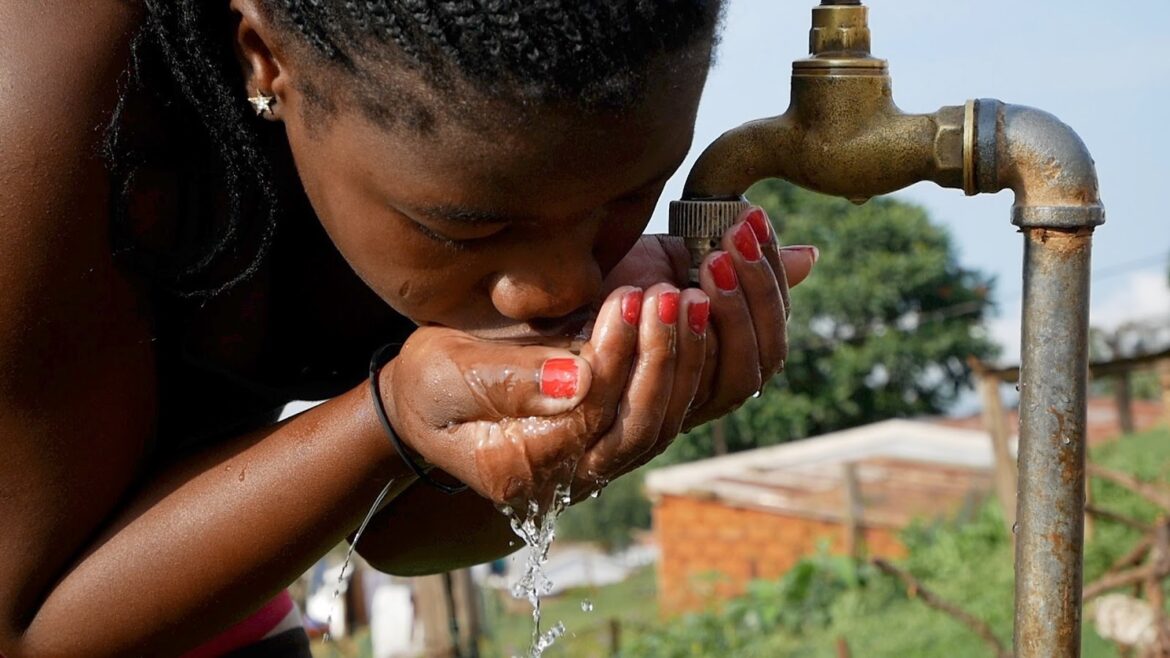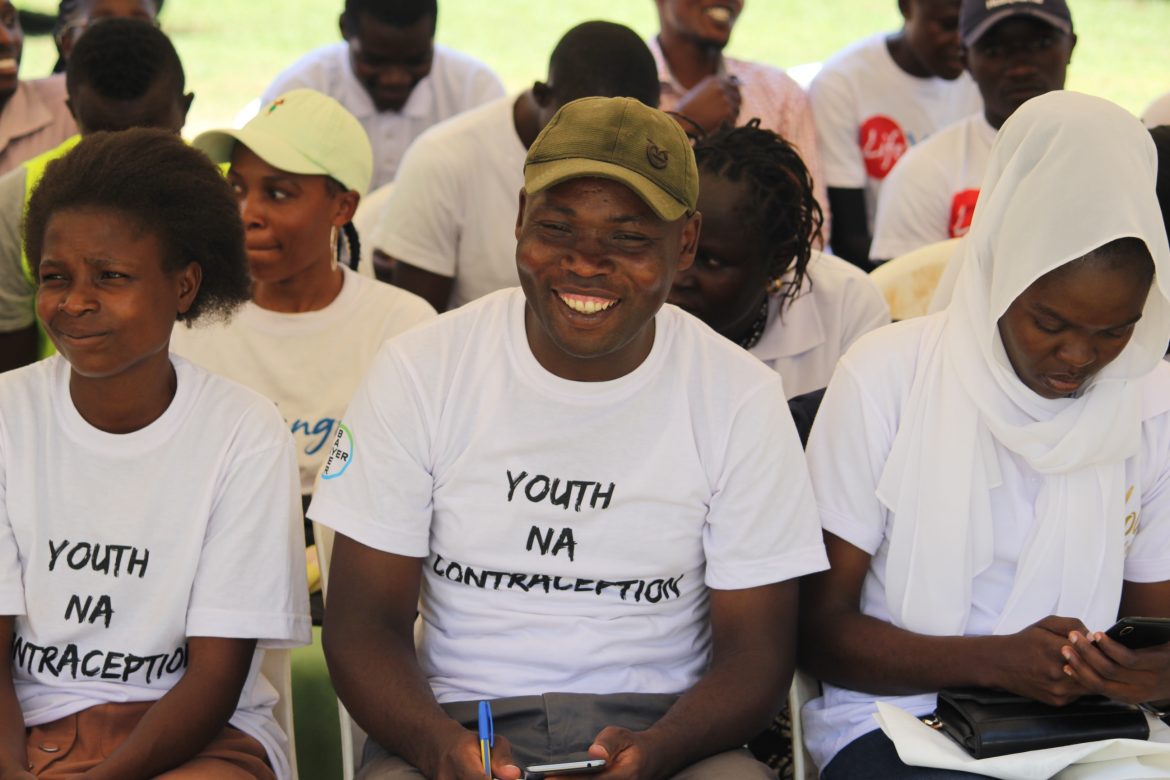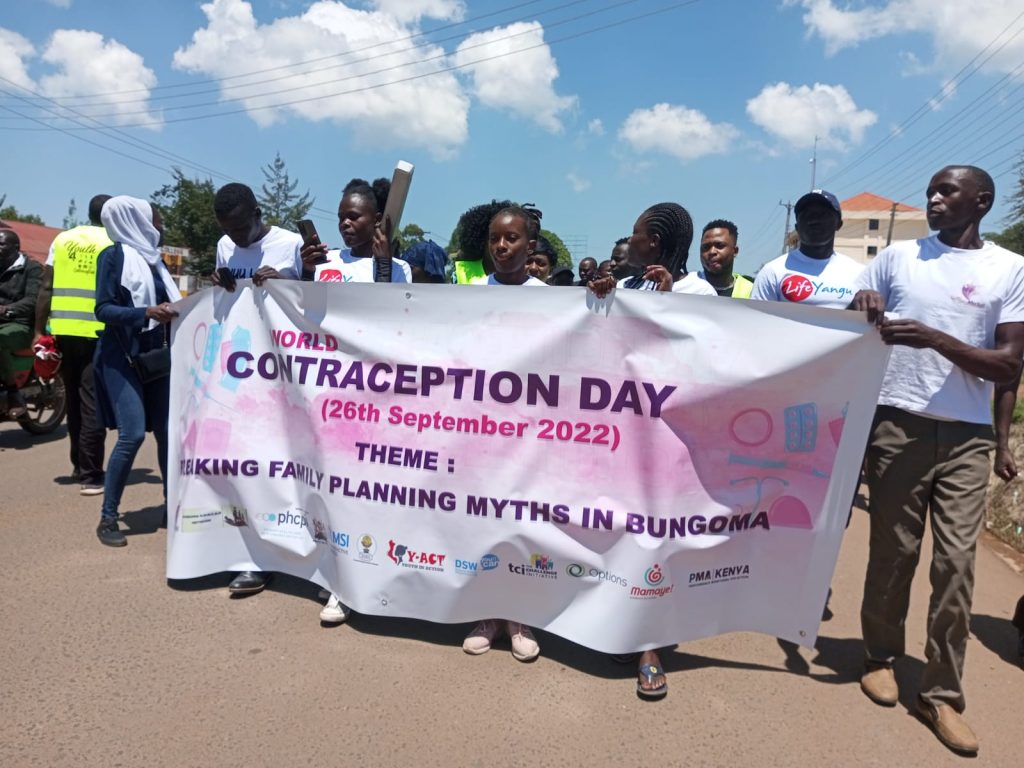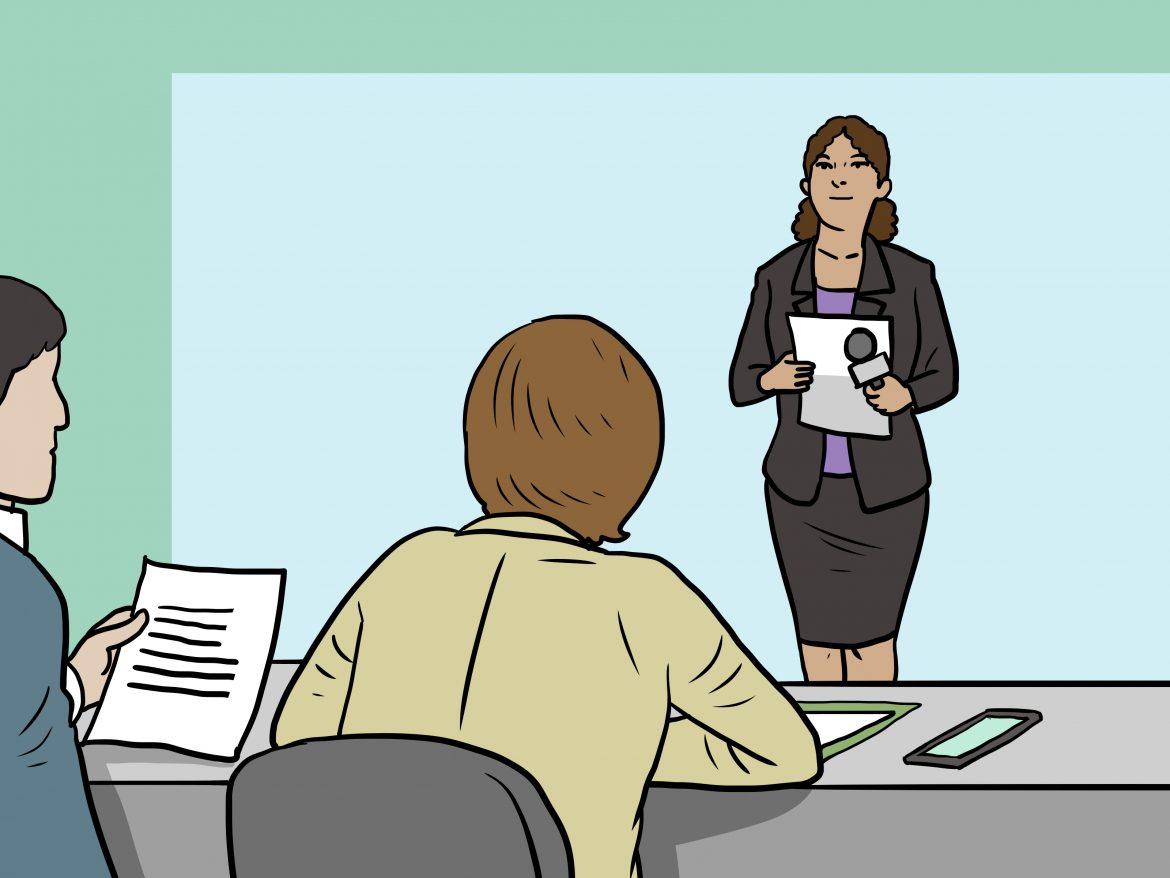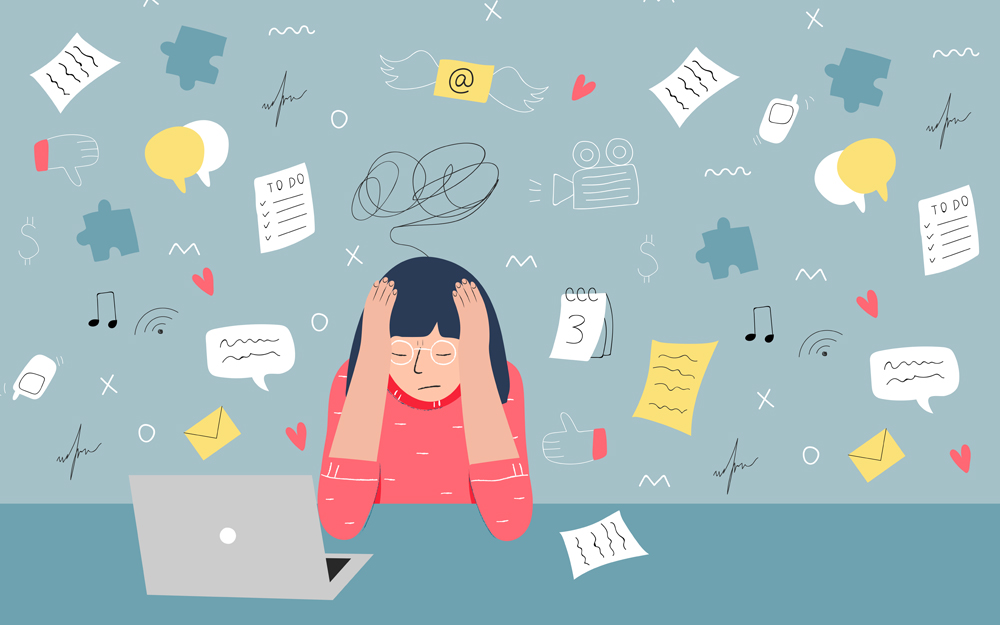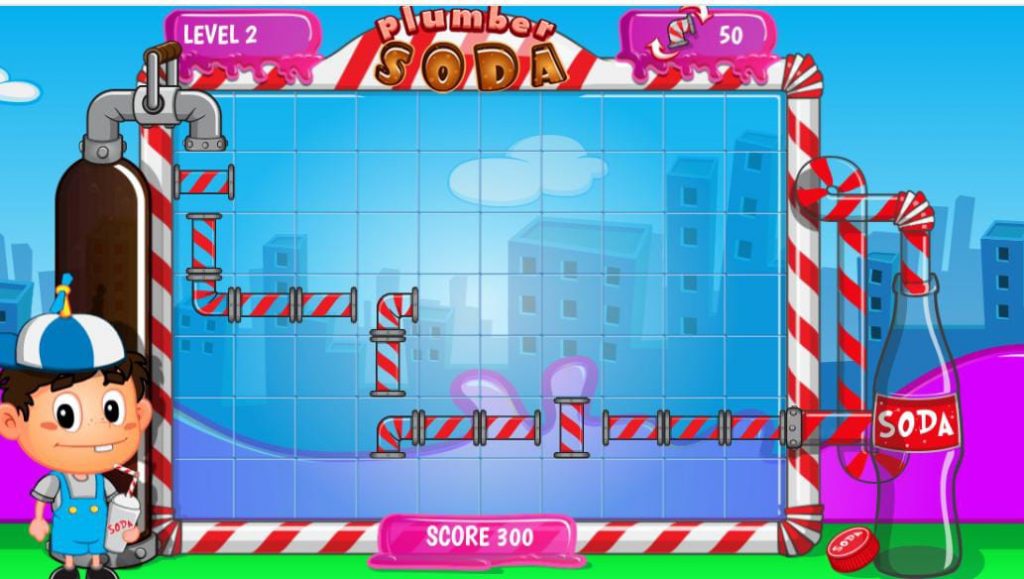According to Center for Disease Control and Prevention (CDC), Sickle Cell Disease is an inherited blood disorder that causes the red blood cell to form a sickle shape blocking blood flow and oxygen from reaching all the body parts of a person.
Joy Watitwa, 36, from Sinoko village, Bungoma County narrates on the pain of living with Sickle Cell Disease (SCD) and goes ahead to call on people to be careful not to marry from families with SCD history.
She talks about her story of resilience after being diagnosed with the disease at 4 months old, battling with it up to now at the age of 36, now creating awareness about the disease and educating people about it.
She narrates
Sickle cell is caused by both parents when they happen to be carriers, for me my parents were both carriers meaning; the percentage is low and less dominant for them.
I turned out with SS after inheriting Hemoglobin S from each of them, for they both have AS. The pain of a SCD patient is caused when the sickle red blood cells fail to pass through the blood vessels because of the sickle shape and whenever they get stuck; it causes a lot of pain to the patient, causing low blood in the body which now results to a sickle cell crisis.
These cells mostly get stuck on the joint that is why you will find many sicklers complaining about severe pains on the joints. The limited supply of blood and nutrients in a sickler patient’s body causes low oxygen supply too and you will find that their eyes appear yellowish in color, something that we, as victims have to live with everyday.
We live on medicines that help to boost our immunity and blood supply in the body because whenever a small issue arises our bodies cannot withstand to fight back like that one of a normal person.
Some of the medicines that we are encouraged to take are Prophylaxis especially as sicklers from Western and Nyanza regions, areas that are prone to Mosquitoes’; we do take Paludrine to prevent Malaria.
I also do take Hydroxyurea medicine daily to help in boosting my immunity. This one depends on the age and the weight of a patient, and so you will find some patients taking more than the other depending on those two factors.
We also do take antibiotics to help whenever there is an infection from a cut or minor accidents, basically our lives revolve around medicines day in day out, we take medicines to survive because our bodies cannot fight on their own.
Whenever a sickler is in a crisis, the first thing that they do to us when we reach the health facility is to check the level of oxygen and blood in the body, if it is less they put us to supplements to revive the normal and needed amount in the body. They then do blood works to check what triggered the crisis and the pain and then they put you on medication depending on the findings.
Managing sickle cell is not easy, it drains one financially because apart from those medications one need to have a proper diet and to live a very delicate life with proper care.
We are supposed to limit ourselves on almost everything, we are not supposed to be stressed or angered and as human beings, this are common things that happen in our daily lives so we find it so hard to control and with that, one can easily be driven into a crisis.
Last year was so tough for me; I was in and out of hospital because I had other medical conditions that were triggered by sickle cell. I developed leg ulcers whereby I had wounds on both of my legs and it was so tough for me to a point where the doctors suggested that I undergo a process called Aphresis.
Aphresis is a process whereby the medical experts drain all the blood in your system and gives you a new one. The process is quite expensive and only done in a few hospitals in the country.
I underwent the process and was given new blood from a normal human being but it doesn’t mean that I am free from SCD, it just boosts my immunity and helps my body to at least function well, this I will say is what has kept me up to now.
I would advise the parents or people dealing with sickler to try and have them undergo the process, it costs around 250 Kenya shillings.
Living With Stigma
I remember when I was growing up, I could hear people talk about my situation saying that I might not get past the age of 12, it was and still is not true.
Sicklers can live normally so long as they be cautious to follow keenly on medical instructions from doctors, I am now above 30 years and others can go as far as 90 years depending on how you take care of yourself, SCD is not a death sentence.
I am a member of Sickle Cell Federation and I am also an advocate for the same. The reason to why I decided to join this movement is to create awareness because there is so much ignorance on this disease, SCD is not a death sentence, it is not witchcraft and neither is transmittable from one person to another, it is inheritable.
I have faced rejection and that is why I decided to amplify my voice on SCD.I don’t want my fellow warriors to face what I have faced all the way from primary school when my fellow kids wouldn’t play with me because they were scared that I will die on them or I might infect them.
I have been subjected to stigmatization at work and it has not been easy, I just had to accept myself and embrace my situation and push myself to keep going.
Sicklers need emotional support because dealing with the whole disease itself is so draining. I just appeal to everyone who is dealing with a sickler or gets to meet them, the least one can do is to give them a word of encouragement and support.
I also appeal for the government both at the County and the national level to intervene and make it easier for us in terms of accessing health facilities and medicines.
Some victims come from poor families and they cannot afford the medicine considering the fact that SCD is an expensive illness and so there is need for the government to get involved. Just like HIV/AIDS, we also need to be helped to at least acquire the medicines either free or subsidize the cost so that they can be affordable.
Medical Expert’s view on Sickle Cell Disease
Doctor Dickens Lubanga who is in charge of pediatric section in Bungoma county Referral Hospital says that in that particular pediatric section only, they get to see up to a thousand children coming in with SCD issues in every month.
He notes that the burden could be higher if the screening is intensified and testing made affordable and available to more residents in the other sub counties like Webuye, Mt Elgon and Kimilili which is alarming.
He says that Bungoma County is gaining momentum as far as SCD is concerned unlike previously where it was much known in Kisumu County.
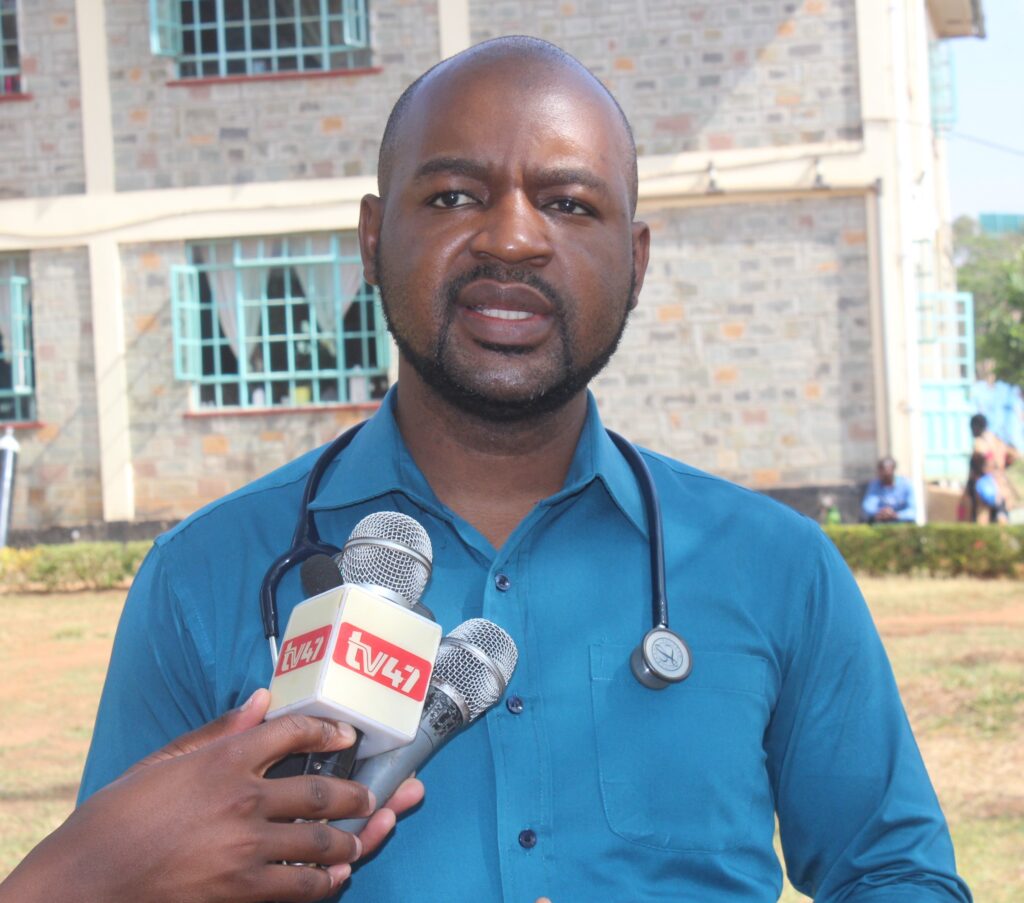
Lubanga says that there’s need for the County government together with the national government to have a conversation over the rising of the cases in the county and help in finding a long lasting solution.
“SCD is inherited and the inheritance pattern is recessive, meaning both the husband and the wife must actually have the trait for it to expressed, we have had issues when the fathers don’t want to associate themselves in the this cases, mostly linking them to the women but we try to make them understand that it is a problem between both of them,” said Lubanga.
Dr Lubanga notes that a study was done in Bungoma County and up to 43% of the adolescent have the trait and goes ahead to encourage the residents to be keen not to intermarry from those regions because it continues to perpetuate the gene of SCD in the population.
“If you must marry from the same region then take a test first, we now have a machine in the county referral hospital that offers Hemoglobin electrophoresis and every test goes for 1500 Kenya shillings. We are encouraging people to take this test because it is way better and affordable to test than have to deal with children who are born sicklers, it is so expensive and emotional draining,” said Dr Lubanga.

